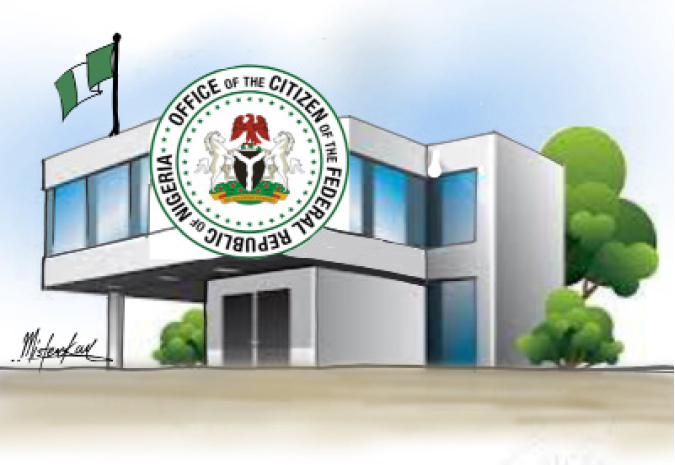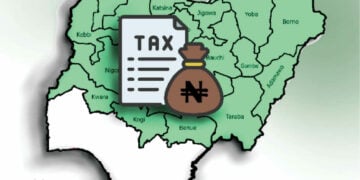President Barack Obama in his farewell speech as the 44th President of the United States in 2016 stated “…for all our outward differences, we in fact all share the same proud type, the most important office in a democracy is the citizen”.
The Office of the Citizen emphasizes the role and responsibility of individuals as active participants in the governance and civic life of their communities and countries. Every citizen holds an informal “office” that comes with certain rights, duties, and responsibilities to contribute to the democratic process and societal well-being.
Citizens have the right to be informed about political, social, and economic issues affecting their communities and the world as well as understanding how to critically evaluate information from various sources to make informed decisions about their lives and work.
Citizens also have the right to hold elected officials accountable through various means, including voting, petitioning, and public demonstrations and advocate for policies and changes that align with their values and interests, including environmental issues, social justice, and economic reform.
Active Citizens, Healthy Democracy
Active citizens are crucial in maintaining and strengthening healthy democratic systems. It empowers individuals to take ownership of their roles within society and fosters a sense of collective responsibility for the common good. A healthy office of the citizen has the right to provide feedback to government agencies and institutions to improve public services and policies.
To support active citizenship, government needs to encourage educational systems to teach students about their roles and responsibilities through ongoing education about civic matters and public affairs. Citizens, regardless of gender, religious and ethnic profile deserve a chance to participate in policy-making processes through public consultations, referendums, and other democratic mechanisms.
By actively engaging in civic life, citizens can drive positive change and contribute to building more resilient, equitable, and inclusive communities. That is why the government needs to promptly and decisively respond to the needs of citizens. Ignoring and dismissing citizen concerns and frustrations or responding with threats of state violence will only make things worse. When this happens, citizens usually have one last resort, protests.
A Missed Opportunity
The protests against bad governance in Nigeria have been a recurring theme over the years, driven by widespread dissatisfaction with corruption, poor economy, poor infrastructure, insecurity, unemployment, and other systemic issues. These protests often reflect the frustration of citizens with the government’s inability to address pressing concerns and deliver essential services effectively.
The fuel subsidy protests (Occupy Nigeria) in 2012 erupted after the government removed fuel subsidies, leading to increased fuel prices. Curiously, many officials in the present administration led these protests. In 2020, the #EndSARS protests initially targeted police brutality, evolved into a broader call against bad governance and systemic issues. Sadly, the government missed another opportunity to listen and respond to the needs of the people before the protests got hijacked by questionable elements.
The “#EndBadGovernance” protests were triggered by specific events that encapsulate broader systemic issues, including the lingering economic hardship, rising fuel prices, increased taxes, and currency devaluation, security failures following incidents of violence, kidnappings, and terrorist attacks that have led to public outrage without commensurate action from government.
Corruption, waste, embezzlement and mismanagement of public funds also fuelled citizens rage against the government. With millions of out-of-school children, unemployed and under-employed young people, the spark for violent protests was only a matter of time. Sadly, the President and other arms of government missed an opportunity to show Nigerians that they care and are ready to act to ensure their demands are met despite weeks of the demands being tabled ahead of the protests.
Citizens’ Demands
Nigerian’s demands are not beyond the reach of the present administration considering that members of this government have in the past led similar protests to the previous administrations when they were still in opposition. The 10 demands by citizens for government to address hunger, cost of living, insecurity, cost of governance, #EndSARS, protect farms and farmers, human capital development, electoral reform, living wage, constitutional and judicial reforms are valid.
Specifically, citizens want government to initiate the reduction in the cost of food immediately, with solutions like food importation, subsidised credits, and intervention in logistics and storage challenges. Citizens want government to address the rising cost of living by reducing the pump price of fuel to N195/litre to reflect current economic challenges and reduce electricity tariffs and import taxes.
Citizens want government to curb insecurity across the country and stop diverting security resources (money & people) and immediately prosecute known instigators & criminals as well as resettle internally displaced persons immediately. Citizens want government to permanently reduce by 50% the running costs of the executive and National Assembly and fully implement the Oronsaye Report to scrap agencies and reduce the size of government. Scrap hardship, entertainment, and all other NASS allowances and immediately remove all 7,447 projects worth N2.24 trillion inserted by the National Assembly in the 2024 federal budget.
Citizens want government to release all #EndSARS protesters; obey ECOWAS judgement; make public the
#EndSARS Judicial Panel Reports and implement recommendations, including payment of compensations. Citizens want government to provide security to farmers across the country, restore stolen lands, subsidise farm inputs – seeds, fertilisers, insecticides and ban destructive GMOs.
Citizens want government to declare a state of emergency on education and increase budgetary allocation to education and healthcare by 20% and revert to the old National Anthem. Citizens want government to implement the Justice Uwais report on Electoral Reform and include mandatory electronic balloting and transmission to
IREV, ending with an executive Electoral Bill to the National Assembly by October 1.
The new Electoral Act must be signed by December 2024.
Citizens want government to go back to the negotiating table for an implementation plan to establish an unemployment/living wage. Enforce implementation across board. Create immediate employment for youths and clear ALL backlog of pensions. Finally, citizens want government to sponsor an Executive Bill to the National Assembly to amend the Constitution to allow for referendums. Nigerians want to vote on a new constitution. The process of appointment and discipline of judges should be transparent.
These demands clearly respond to Section 14 of the 199 Constitution of the Federal Republic of Nigeria, “the security and welfare of the people shall be the primary purpose of government.”
A Chance To Renew Hope…
The #EndBadGovernance” protests in Nigeria reflect the deep-seated frustrations of citizens with systemic issues that have persisted for decades and underscore the potential for collective action to drive positive change and hold government accountable.
According to Yemi Adamolekun, the Executive Director of Enough is Enough Nigeria, “the government’s inaction and attempt to intimidate citizens speak volumes about its disconnect from the people, who desperately need empathy and tangible change.”
In the face of government inaction, citizens must do something in the words of Mahatma Gandhi, “You may never know what results come from your action. But if you do nothing, there will be no result” and Angela Davies
“Protest is not a disruption, but a necessary correction”.
While the #EndSARS protests led to the disbandment of SARS and heightened awareness of broader governance issues, the #OccupyNigeria protests forced the government to partially reinstate fuel subsidies, highlighting citizens’ power to influence policy.
The government has another opportunity to act quickly and respond to the demands of Nigerians not through intimidation and state-sponsored violence but by leading by example, demonstrating empathy and commitment to the wellbeing of the people they swore to serve on May 29, 2023.





